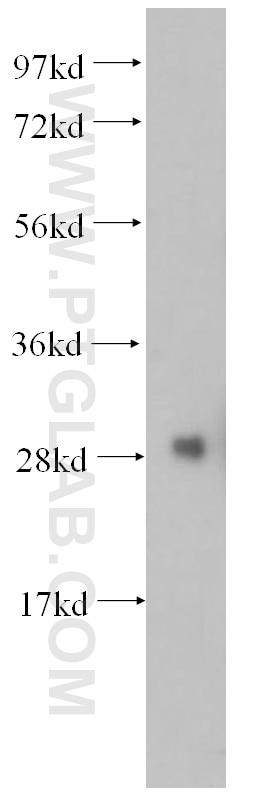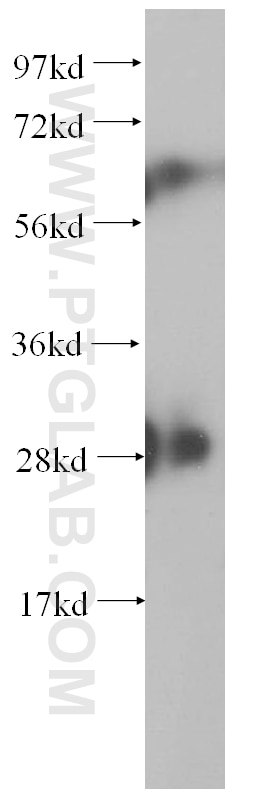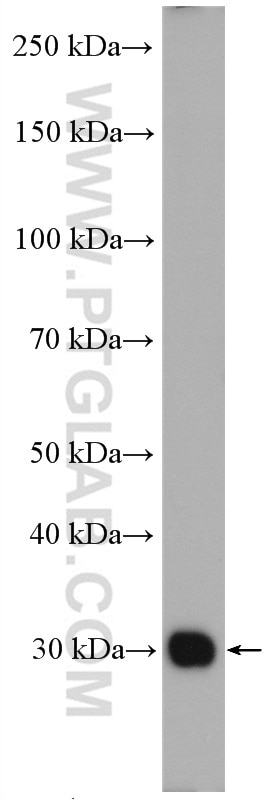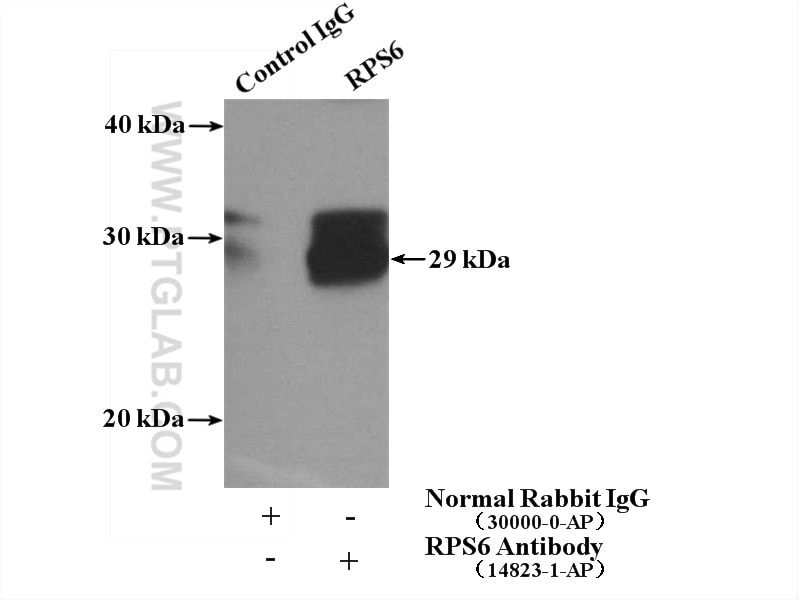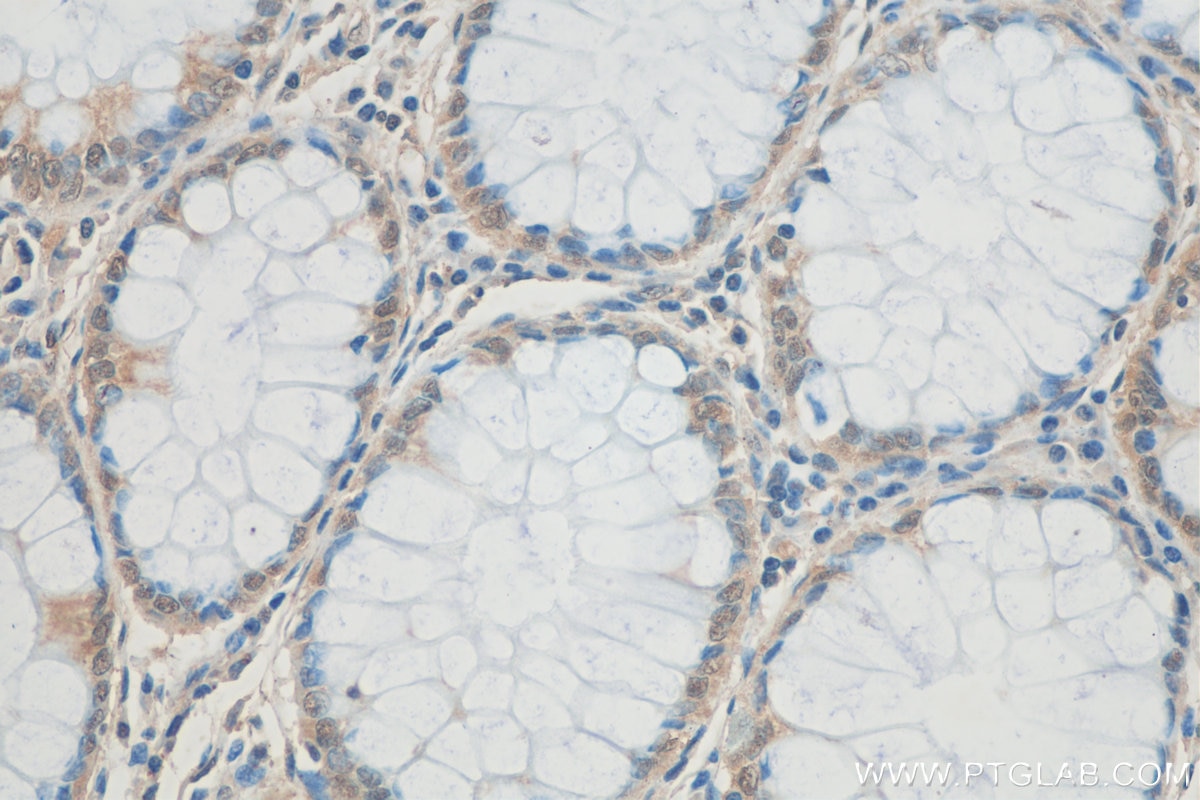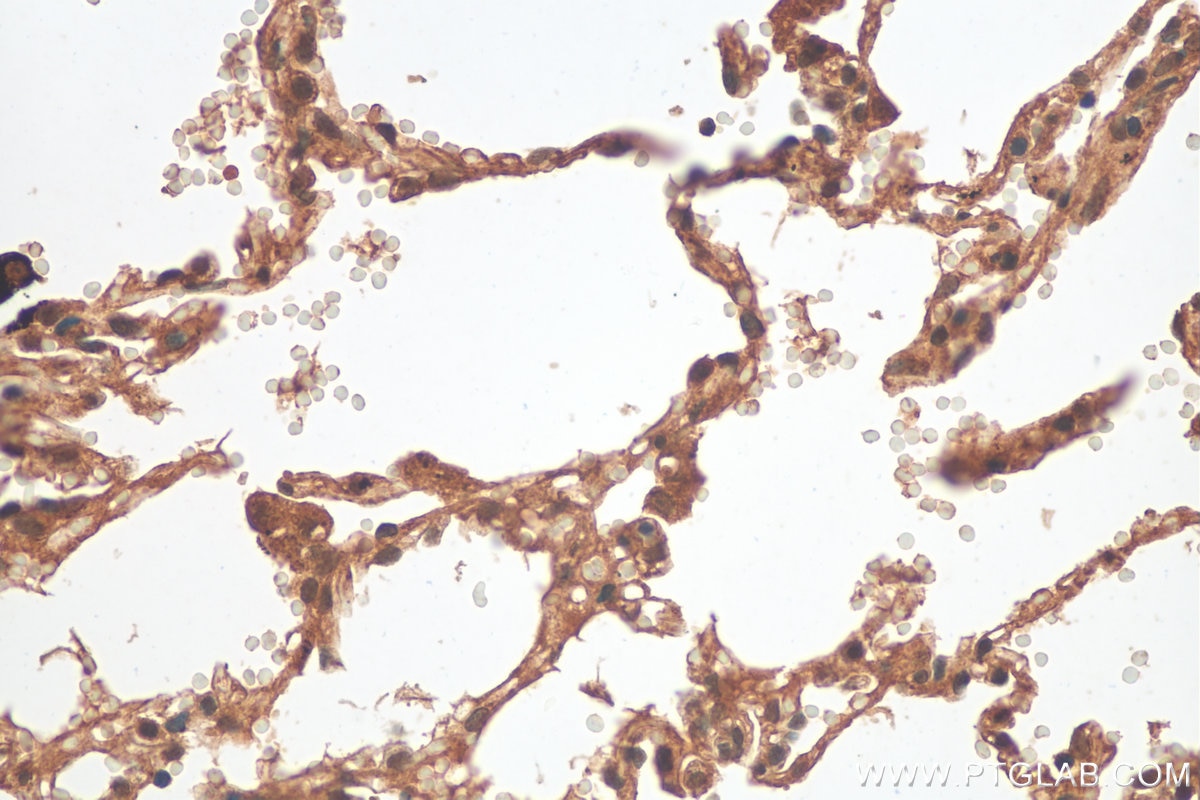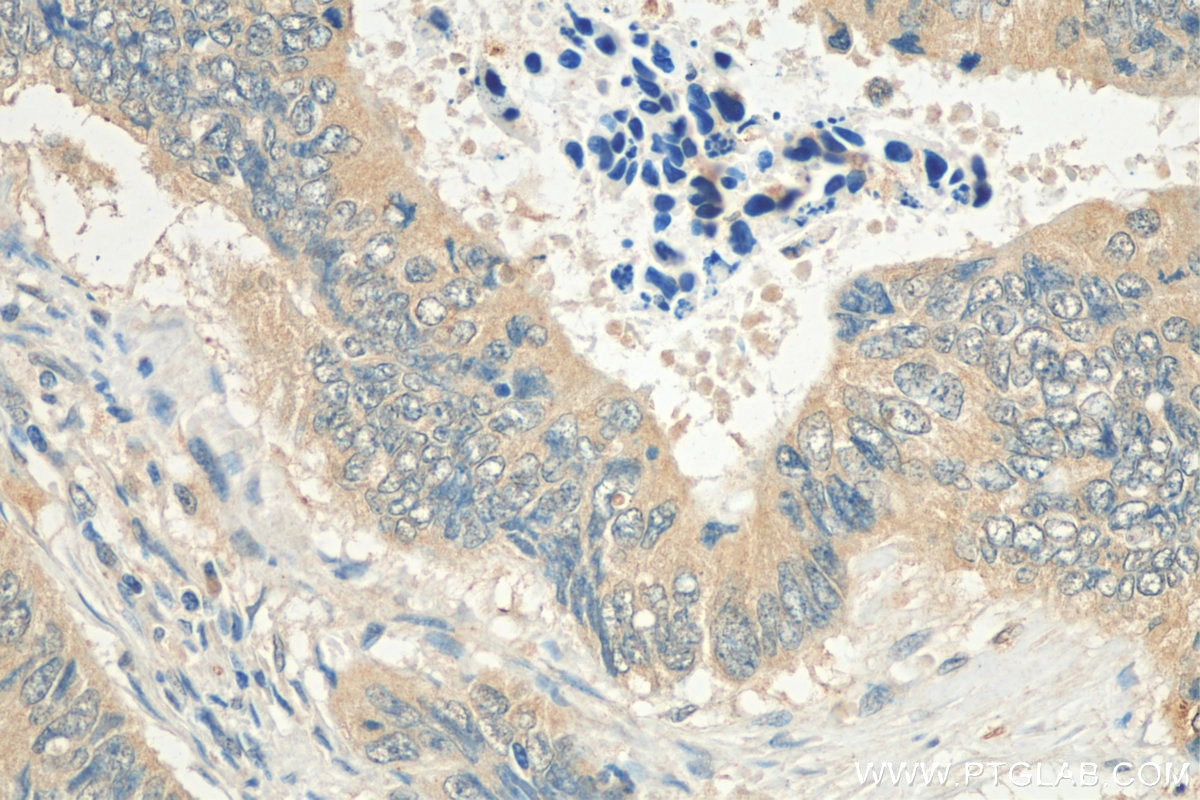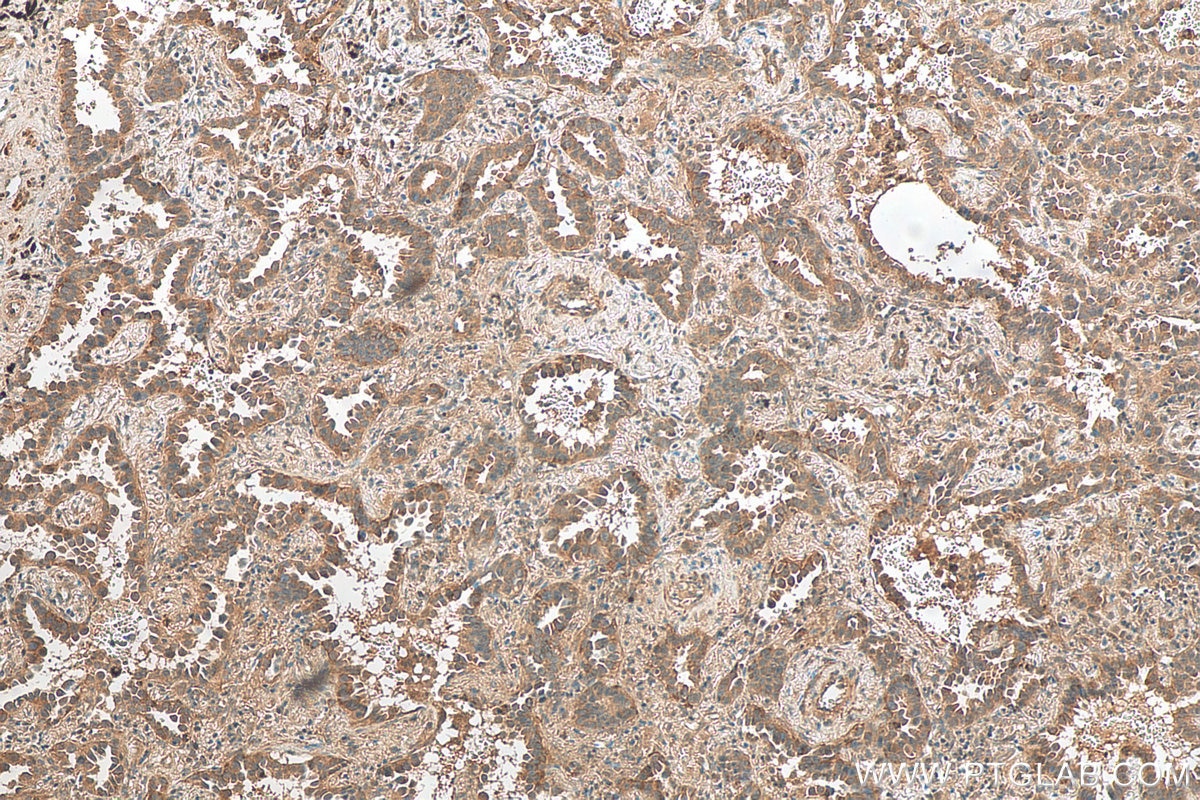Tested Applications
| Positive WB detected in | K-562 cells, MCF-7 cells, mouse kidney tissue |
| Positive IP detected in | MCF-7 cells |
| Positive IHC detected in | human lung cancer tissue, human colon cancer tissue Note: suggested antigen retrieval with TE buffer pH 9.0; (*) Alternatively, antigen retrieval may be performed with citrate buffer pH 6.0 |
Recommended dilution
| Application | Dilution |
|---|---|
| Western Blot (WB) | WB : 1:500-1:1000 |
| Immunoprecipitation (IP) | IP : 0.5-4.0 ug for 1.0-3.0 mg of total protein lysate |
| Immunohistochemistry (IHC) | IHC : 1:50-1:500 |
| It is recommended that this reagent should be titrated in each testing system to obtain optimal results. | |
| Sample-dependent, Check data in validation data gallery. | |
Published Applications
| WB | See 27 publications below |
| IF | See 1 publications below |
| IP | See 1 publications below |
| RIP | See 1 publications below |
Product Information
14823-1-AP targets S6 Ribosomal protein in WB, IHC, IF, IP, RIP, ELISA applications and shows reactivity with human, mouse samples.
| Tested Reactivity | human, mouse |
| Cited Reactivity | human, mouse, rat, zebrafish |
| Host / Isotype | Rabbit / IgG |
| Class | Polyclonal |
| Type | Antibody |
| Immunogen |
CatNo: Ag6599 Product name: Recombinant human RPS6 protein Source: e coli.-derived, PET28a Tag: 6*His Domain: 1-249 aa of BC000524 Sequence: MKLNISFPATGCQKLIEVDDERKLRTFYEKRMATEVAADALGEEWKGYVVRISGGNDKQGFPMKQGVLTHGRVRLLLSKGHSCYRPRRTGERKRKSVRGCIVDANLSVLNLVIVKKGEKDIPGLTDTTVPRRLGPKRASRIRKLFNLSKEDDVRQYVVRKPLNKEGKKPRTKAPKIQRLVTPRVLQHKRRRIALKKQRTKKNKEEAAEYAKLLAKRMKEAKEKRQEQIAKRRRLSSLRASTSKSESSQK Predict reactive species |
| Full Name | ribosomal protein S6 |
| Calculated Molecular Weight | 29 kDa |
| Observed Molecular Weight | 29-32 kDa |
| GenBank Accession Number | BC000524 |
| Gene Symbol | RPS6 |
| Gene ID (NCBI) | 6194 |
| RRID | AB_2181025 |
| Conjugate | Unconjugated |
| Form | Liquid |
| Purification Method | Antigen affinity purification |
| UNIPROT ID | P62753 |
| Storage Buffer | PBS with 0.02% sodium azide and 50% glycerol, pH 7.3. |
| Storage Conditions | Store at -20°C. Stable for one year after shipment. Aliquoting is unnecessary for -20oC storage. 20ul sizes contain 0.1% BSA. |
Background Information
Ribosomal protein S6 (RPS6),Phosphoprotein NP33.It may play an important role in controlling cell growth and proliferation through the selective translation of particular classes of mRNA.Ribosomal protein S6 is the major substrate of protein kinases in eukaryote ribosomes. The phosphorylation is stimulated by growth factors, tumor promoting agents, and mitogens. It is dephosphorylated at growth arrest. Phosphorylated at Ser-235 and Ser-236 by RPS6KA1 and RPS6KA3; phosphorylation at these sites facilitates the assembly of the preinitiation complex.
Publications
| Species | Application | Title |
|---|---|---|
Nat Commun Pharmacological inhibition of Lin28 promotes ketogenesis and restores lipid homeostasis in models of non-alcoholic fatty liver disease | ||
Nat Commun The short isoform of the host antiviral protein ZAP acts as an inhibitor of SARS-CoV-2 programmed ribosomal frameshifting. | ||
Mol Ther RNA m6A methylation regulates the dissemination of cancer cells via modulating expression and membrane localization of β-catenin. | ||
Development MFN2 interacts with nuage-associated proteins and is essential for male germ cell development by controlling mRNA fate during spermatogenesis | ||
Oncotarget Effective use of PI3K inhibitor BKM120 and PARP inhibitor Olaparib to treat PIK3CA mutant ovarian cancer. |
Reviews
The reviews below have been submitted by verified Proteintech customers who received an incentive for providing their feedback.
FH Wei (Verified Customer) (01-30-2020) | Strong, clear band as predicted around 30 kDa.
|

